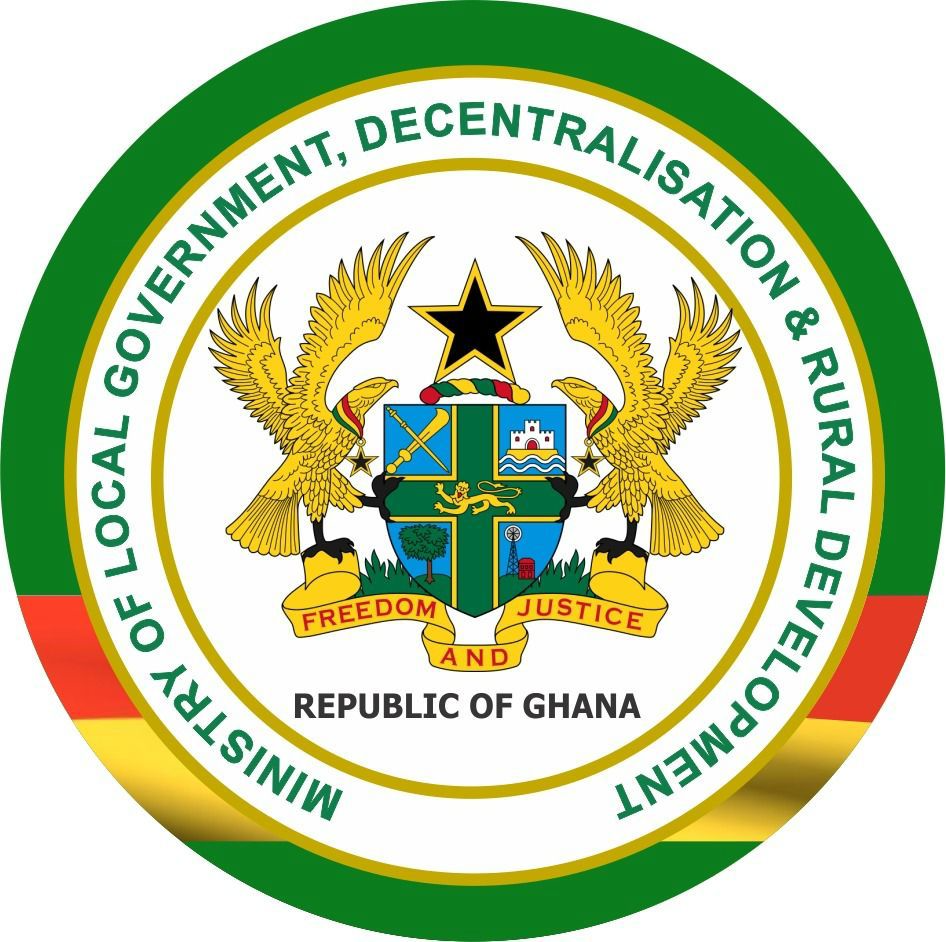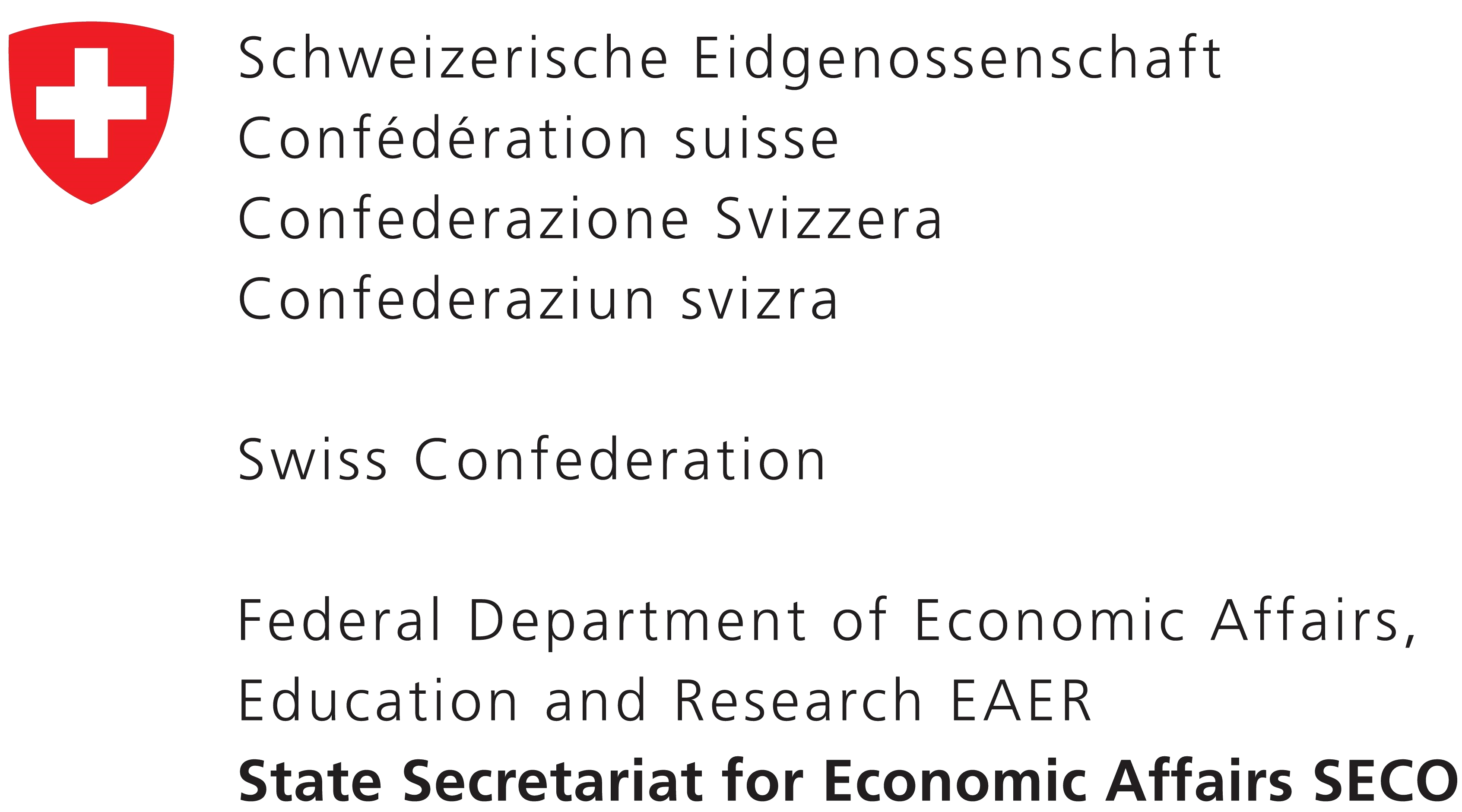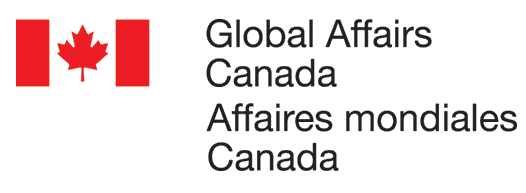dLRev.org is the umbrella for developing and maintaining dLRev and the underlying spatial platform, which we named Nmetso
How did dLRev Originate?
The development of district Local Revenue (dLRev) software was initiated in 2013 under the Support for Decentralisation Reform (SfDR) Programme implemented by the Deutsche Gesellschaft für Internationale Zusammenarbeit (GIZ) GmbH. SfDR is a bilateral programme between the Government of Ghana (GoG) and the Federal Republic of Germany which came to an end officially in September 2019 after 12 years of implementation, but now has a successor programme – Governance for Inclusive Development (GovID). The GovID Programme started in October 2020 and runs till September 2023. It is being implemented at the national and sub-national levels with key partners as Ghana Revenue Authority, The Ghana Audit Service, Ministry of Finance, Ministry of Local Government and Rural Development, and 100 Metropolitan, Municipal and District Assemblies (MMDAs). In 2012, the SfDR Programme started implementation of a Local Revenue Enhancement Project with the aim of assisting target MMDAs to increase their local revenue especially for property rates and business operating permits (licences). To achieve this objective, SfDR undertook a ‘Comprehensive Review of the Revenue Landscape in Ghana’ to establish the key constraints of local revenue operations of the district level. The review involved engagements with national, regional and district level agencies and actors to unearth existing and on-going initiatives which could foster improvements from the structural, systemic and operational perspectives for local revenue mobilisation. At the district level, the areas of interest for the review included among others data quality, software use for data storage, billing and collection as well as the use of Geographical Information System. A range of key challenges were unearthed from the review including:
National Level
- Cessation of the issuing of guidelines for fixing of rates, fees and charges
- Limited data on the revenue potential of MMDAs which makes it difficult to set realistic targets for MMDAs to achieve
- Limited overview of the revenue potential of MMDAs due to inadequate data
- Limited policy direction on Public-Private-Partnership for IGF operations (the challenges of tax farming – outsourcing arrangements), and
- Weak system for the tracking of local revenue performance of the MMDAs
District Level
- Data sets stored in Ms Excel format without location parameters, which makes it difficult to locate revenue points of the field
- No nationally accepted system of defining and maintaining databases at the DA level
- Multiplicity of software applications providing limited or no solution to addressing the MMDA geo-location challenge
- No systems and tools for billing and collection of local revenues, and
- Limited clout of the revenue collection machinery at the district level
Based on the above, a reform process was initiated aimed at making use of existing government systems and tools to implement dLRev. The following key areas were considered to start the process:
Key areas
- Develop a system able to use spatial and fiscal cadastre to utilise the output of the SNPA exercise for properties and businesses;
- Harmonise and codify Fee Fixing Resolutions of MMDAs to provide a basis for computerising the revenue items
- Provide the needed guidance for MMDAs regarding the entire operations of the entire revenue landscape
- Make the efforts of setting up spatial and fiscal databases by MMDAs relevant to operations of other government agencies, thereby ensuring the sustainability of dLRev in Ghana’s development agenda by linking it to other national systems such as Ghana Integrated Financial and Management Information System (GIFMIS)
There is no doubt that in recent past, Ghana interest for increased digitisation for the management of the economy. This outlook was foreseen by the SfDR Programme as far back as 2012 and therefore supported the preparation and issuance of the Street Naming and Property Addressing Policy and Guidelines. This was also anchored on utilising the Land Use Planning and Management Information System (LUPMIS) to develop spatial databases as the basis for the establishment of fiscal cadastre for revenue mobilisation for dLRev.
It is understood that the spatial databases of MMDAs will ultimately be consolidated to become the basic platform to be used by all other relevant government agencies for their operations and influence the way of doing business in Ghana.

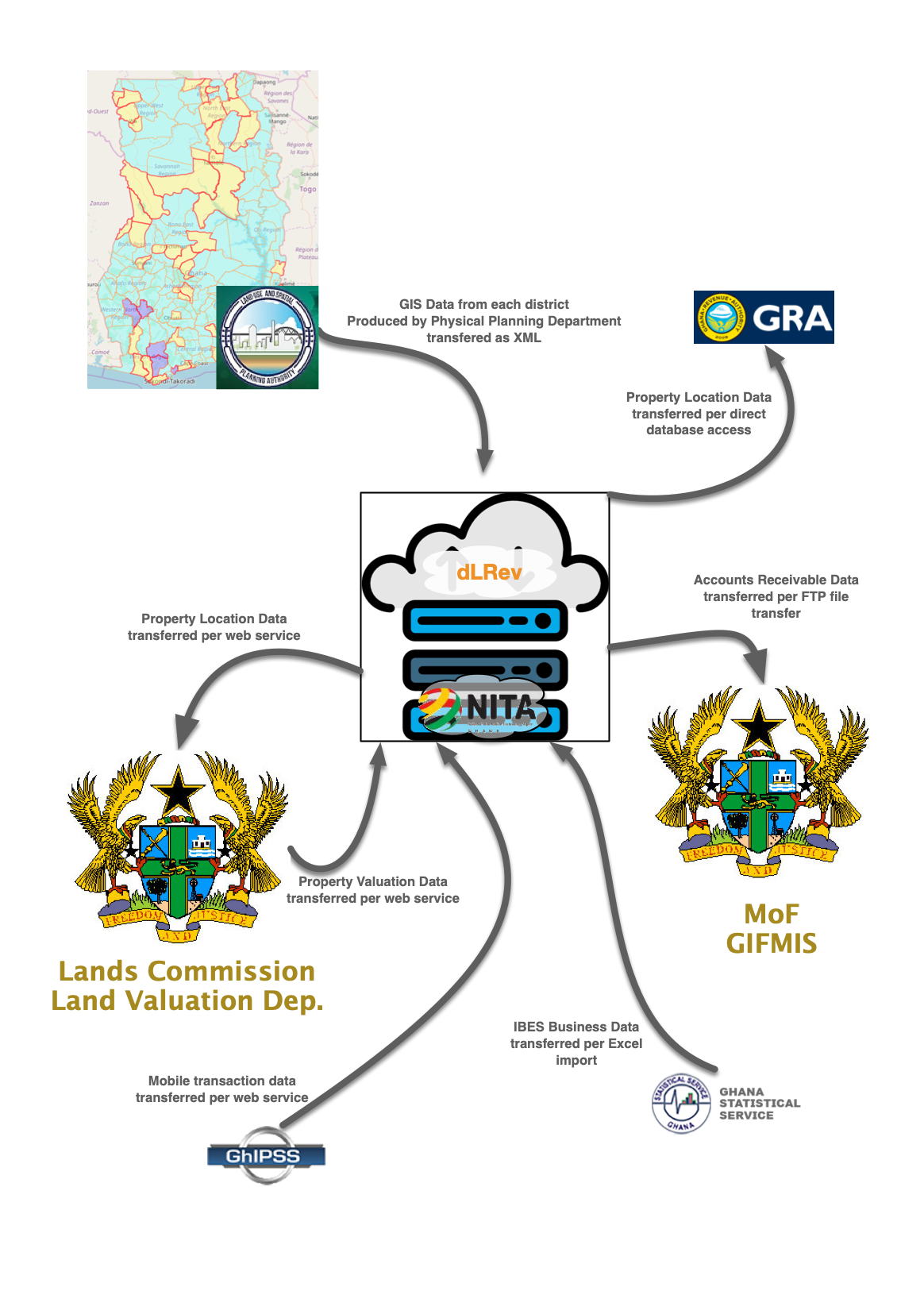




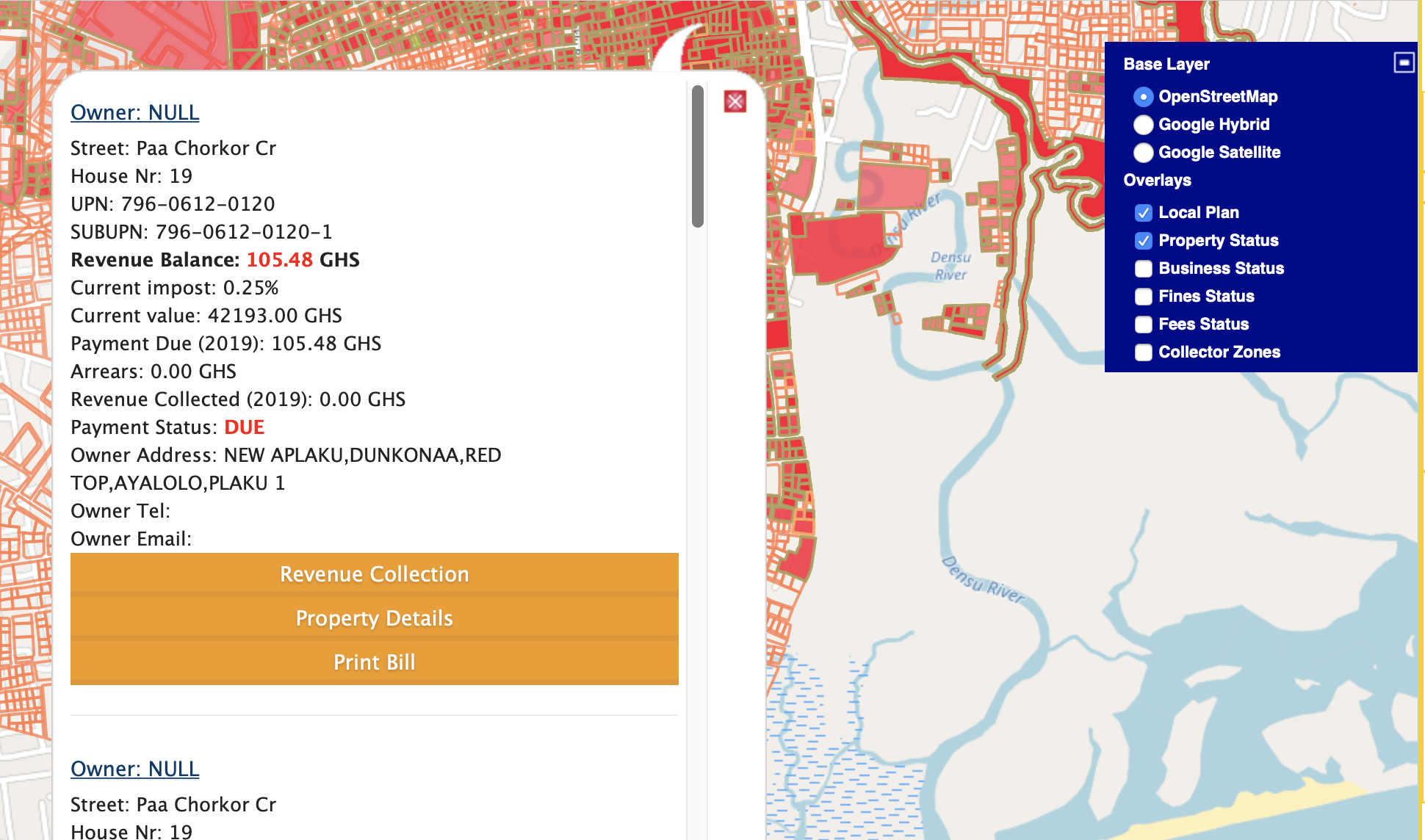
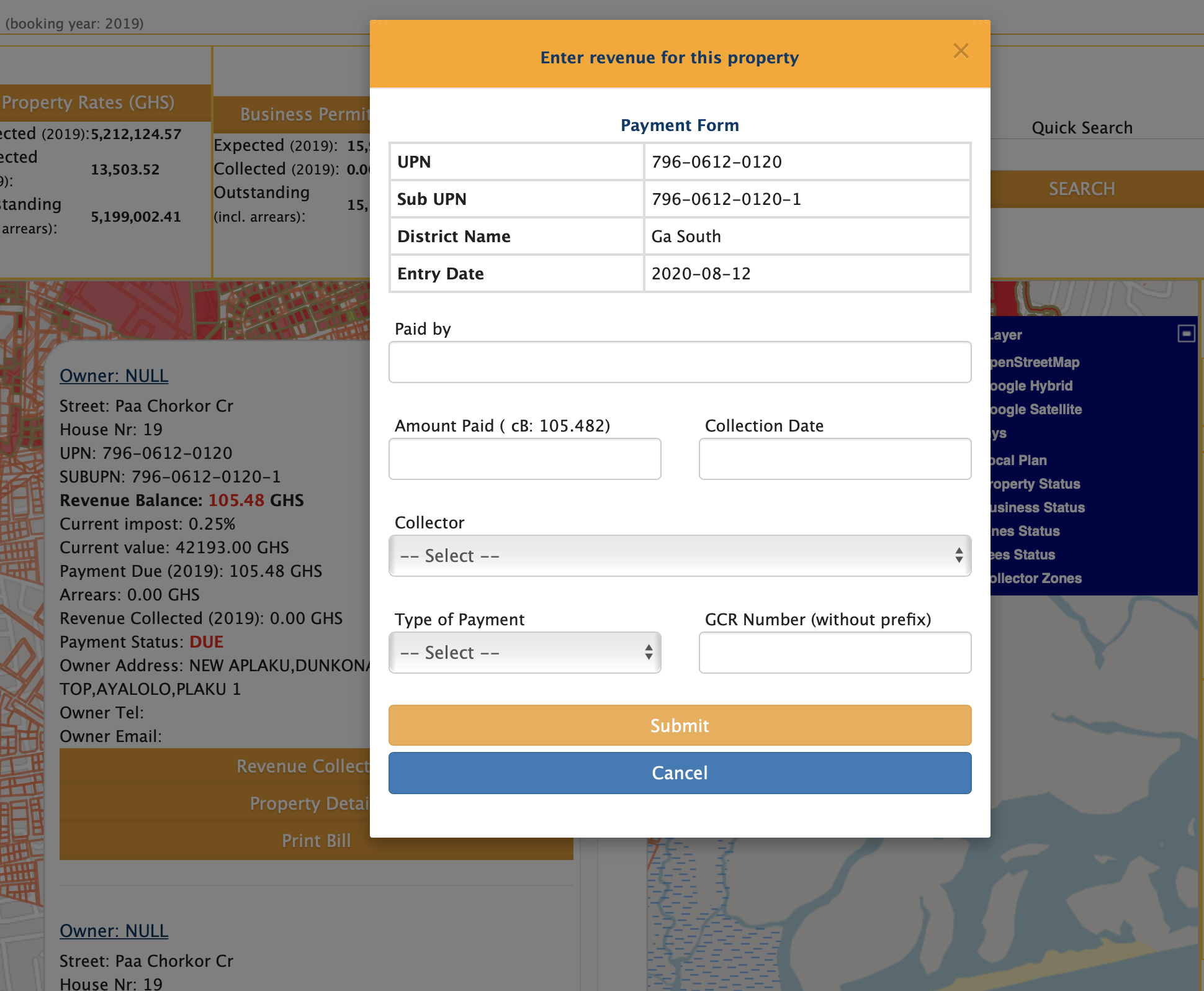
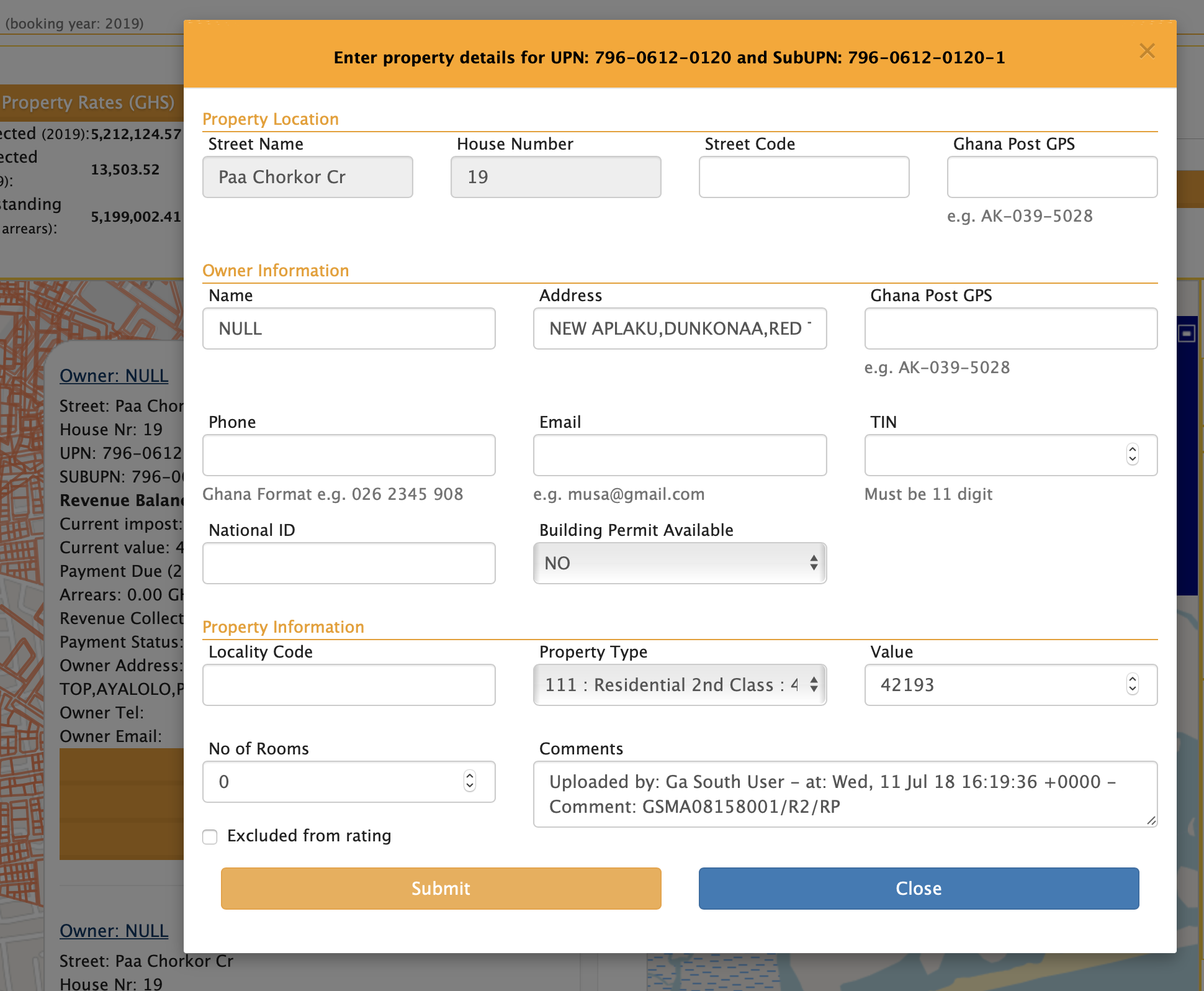
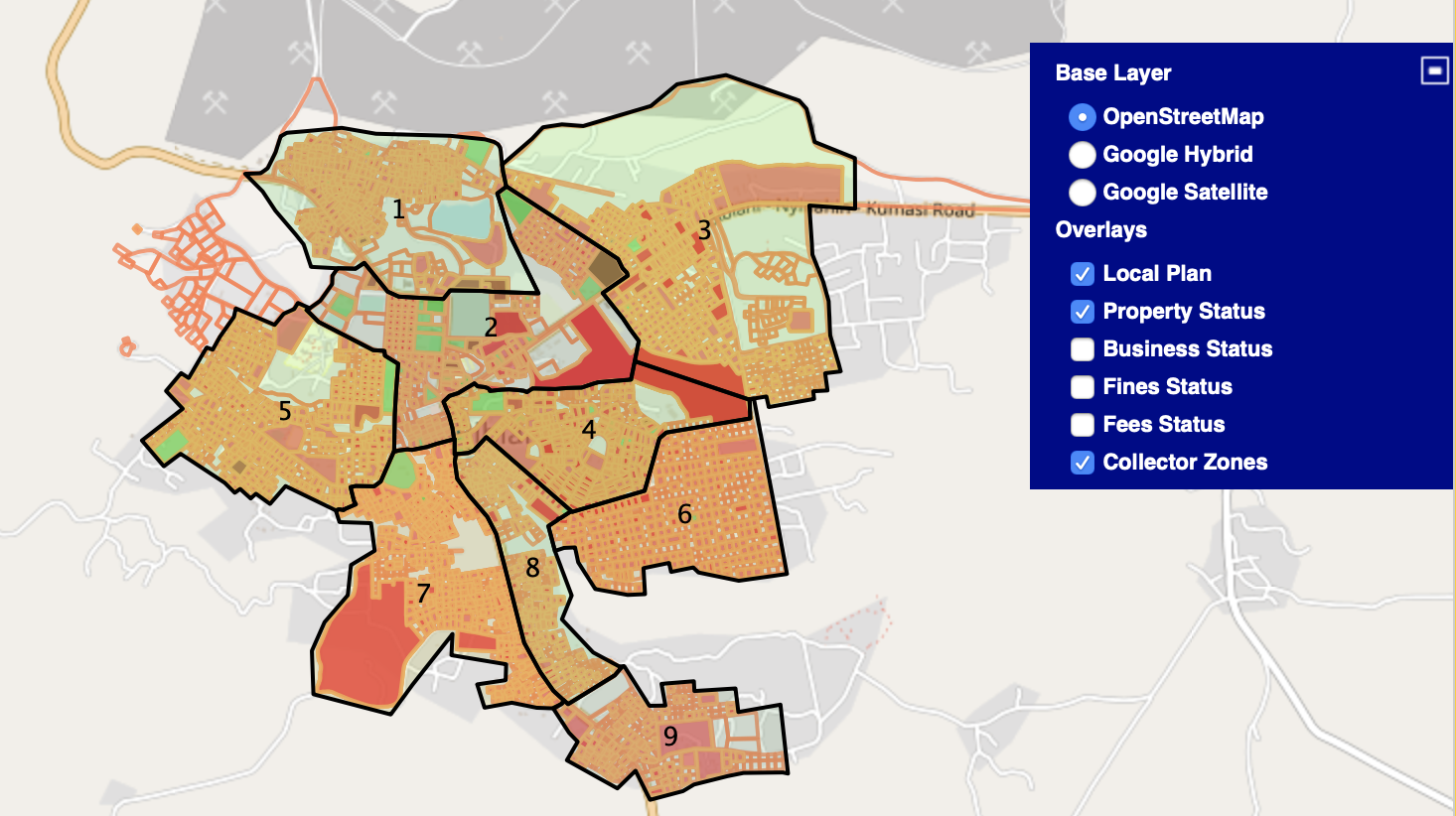
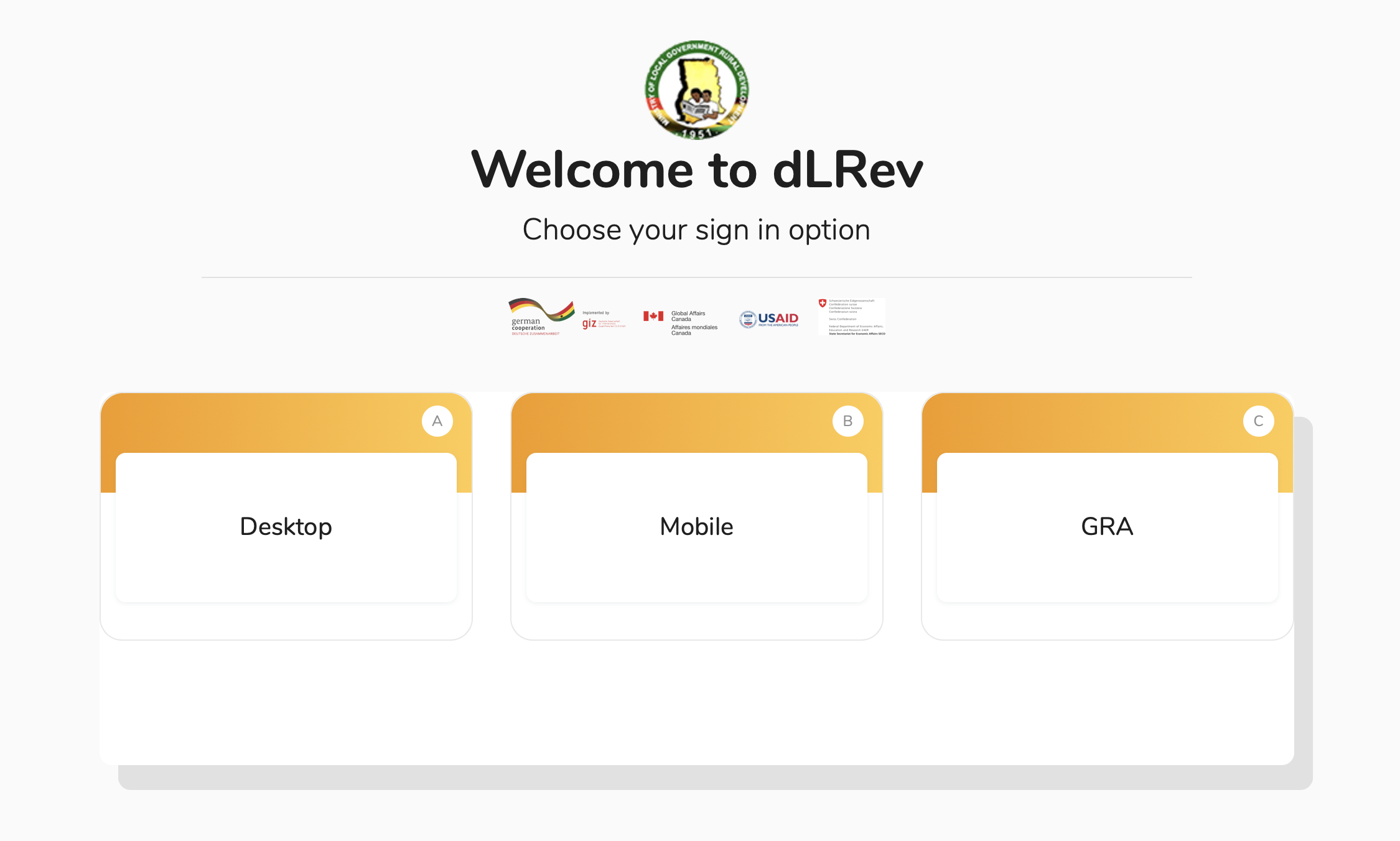
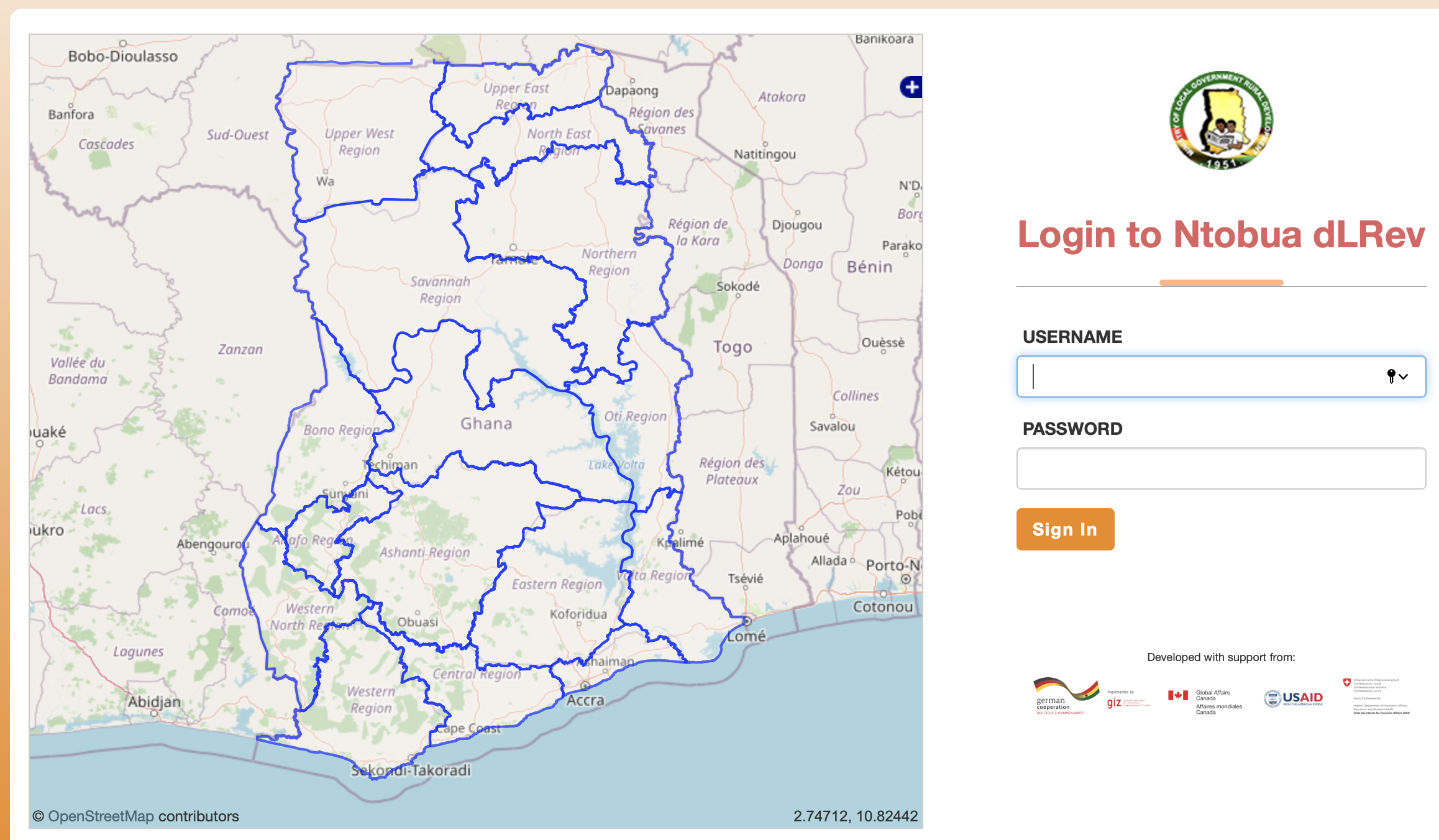
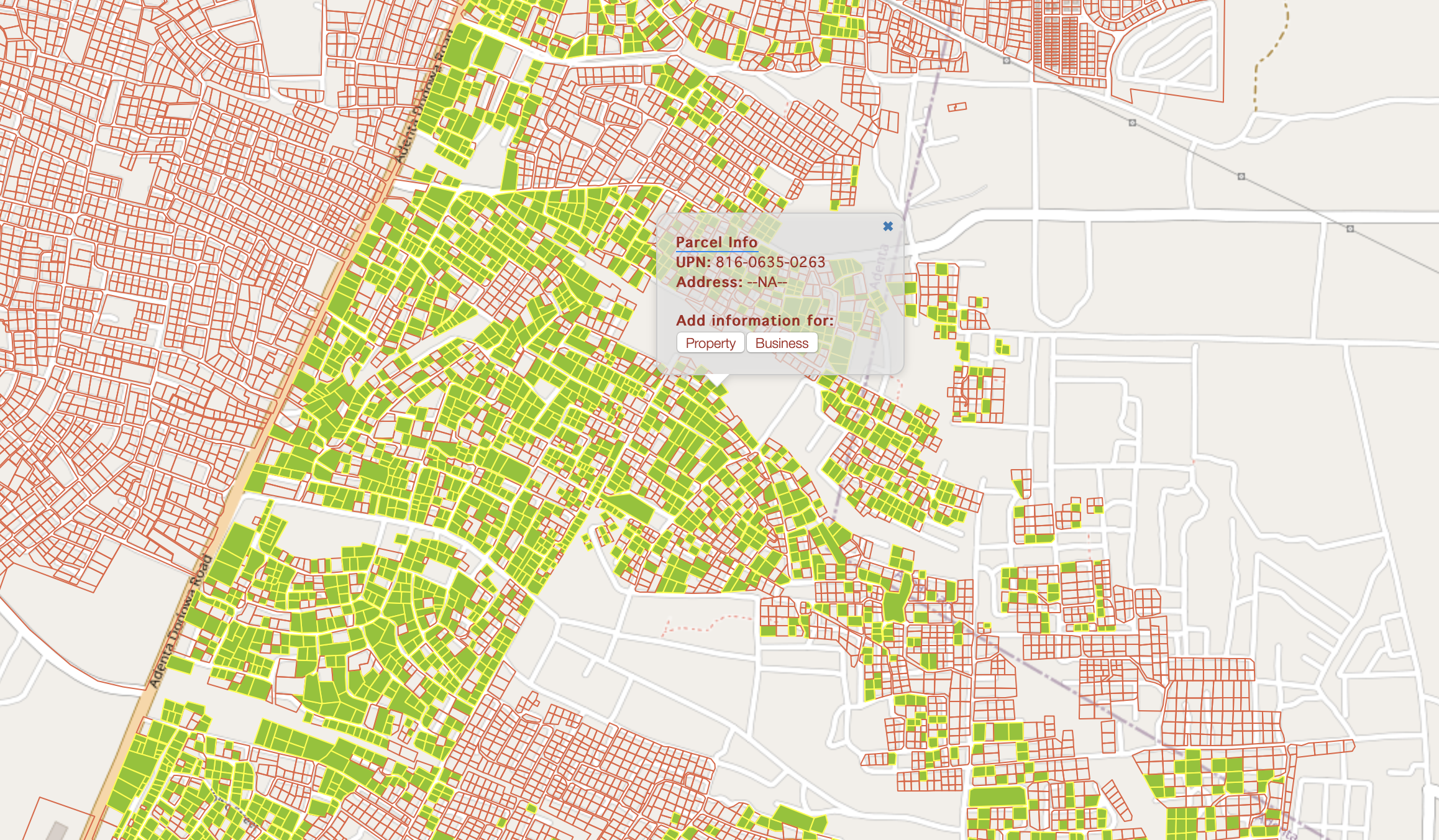
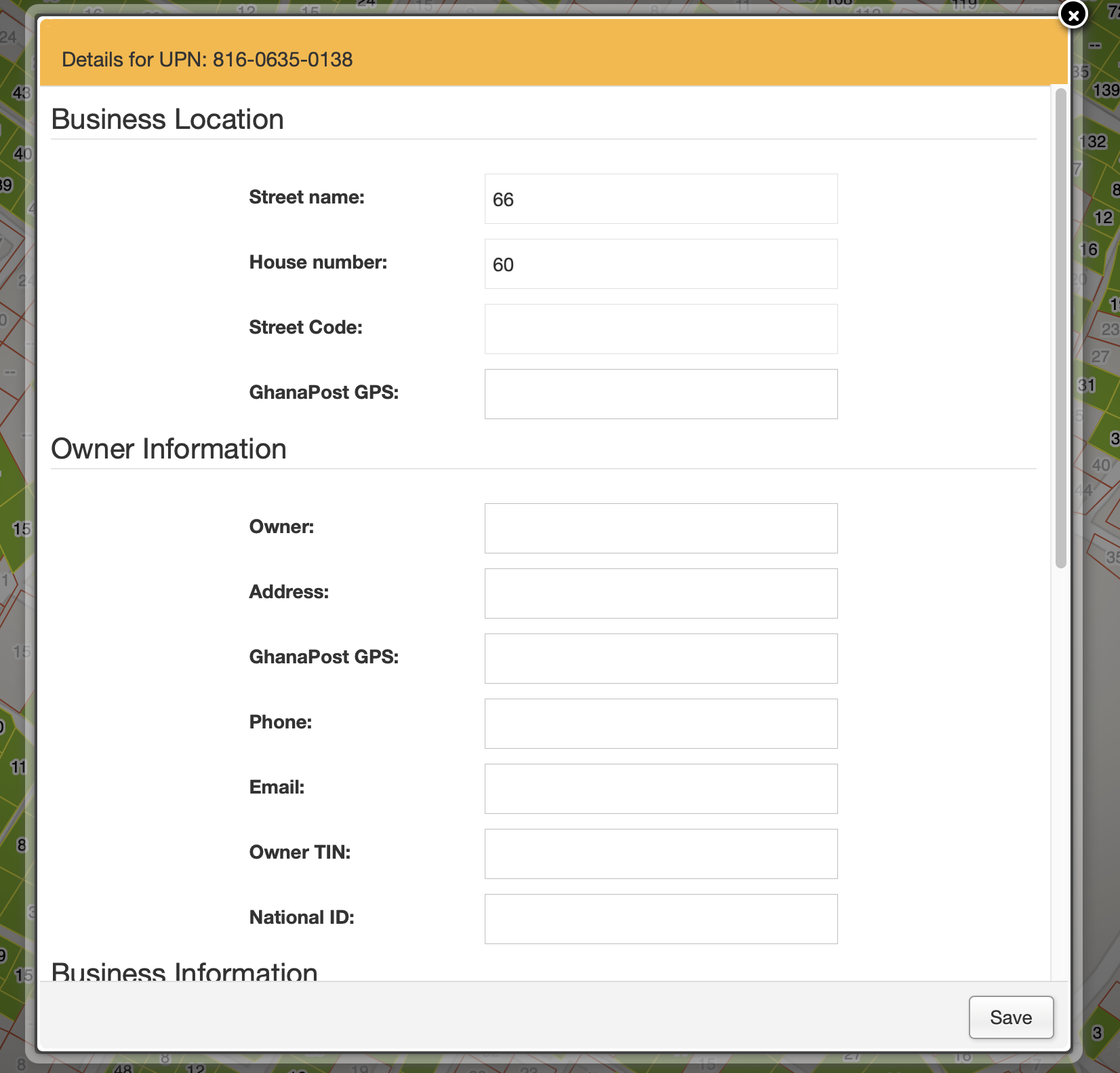
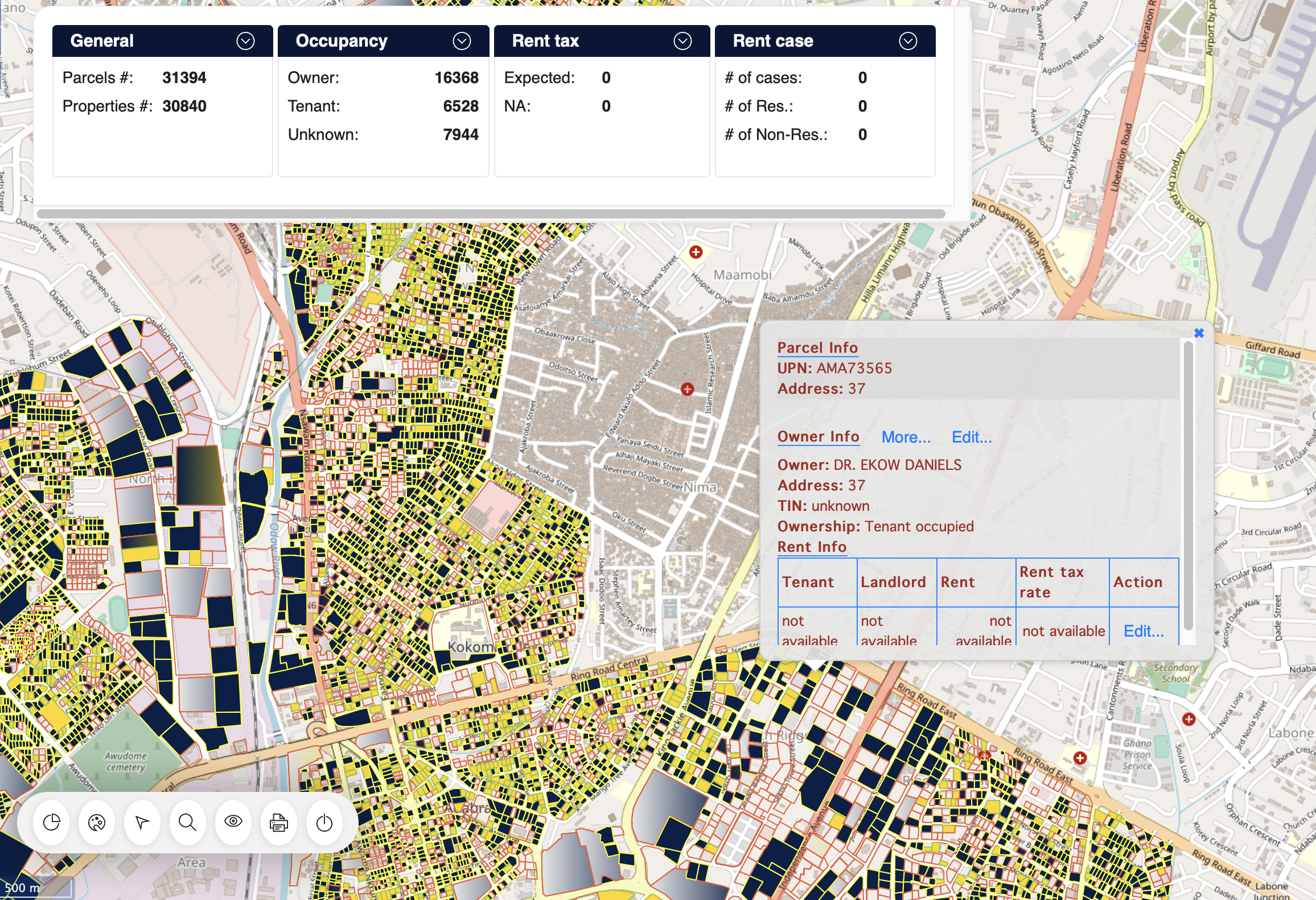
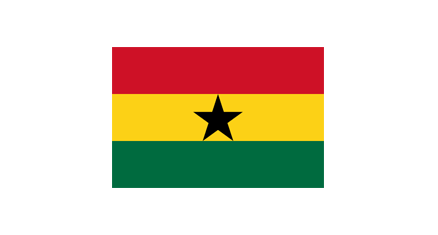 Ghana => Test server
Ghana => Test server GIZ Ghana
GIZ Ghana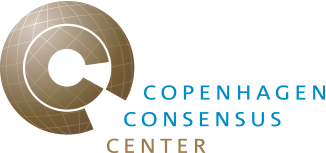 Ghana Priorities
Ghana Priorities Minister launches Digitial Solutions for revenue mobilisation for MMDAs - GhanaWeb
Minister launches Digitial Solutions for revenue mobilisation for MMDAs - GhanaWeb